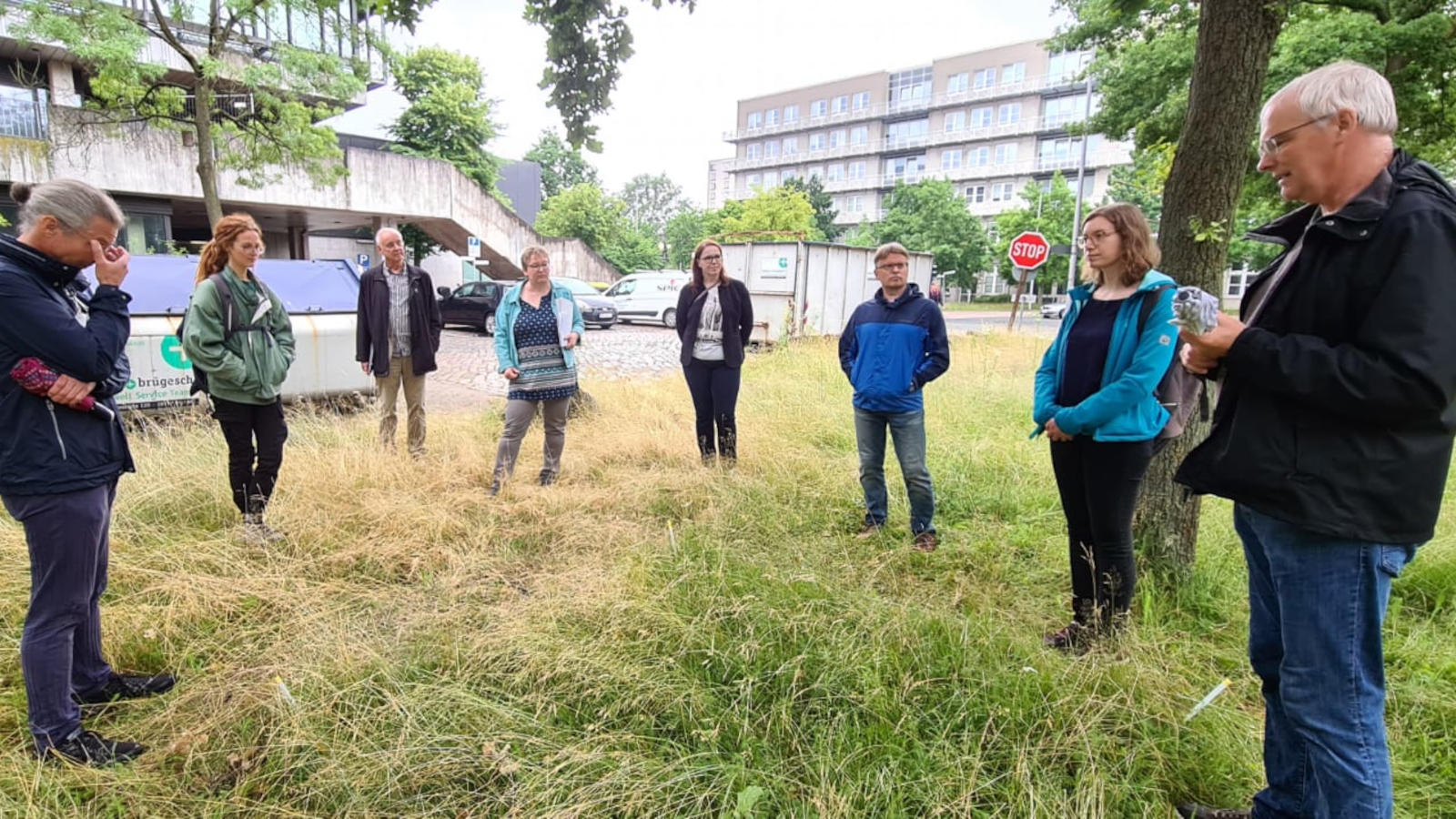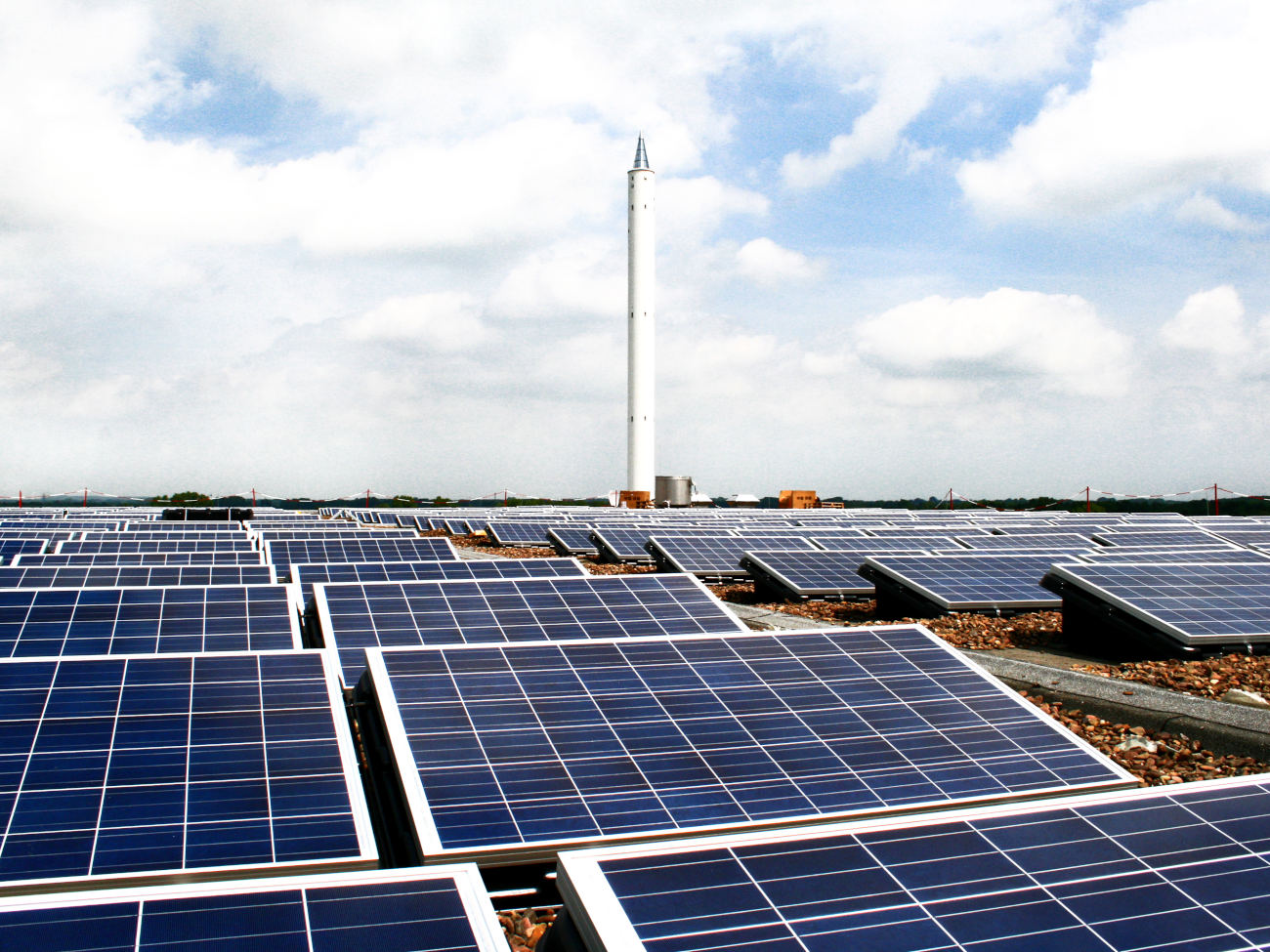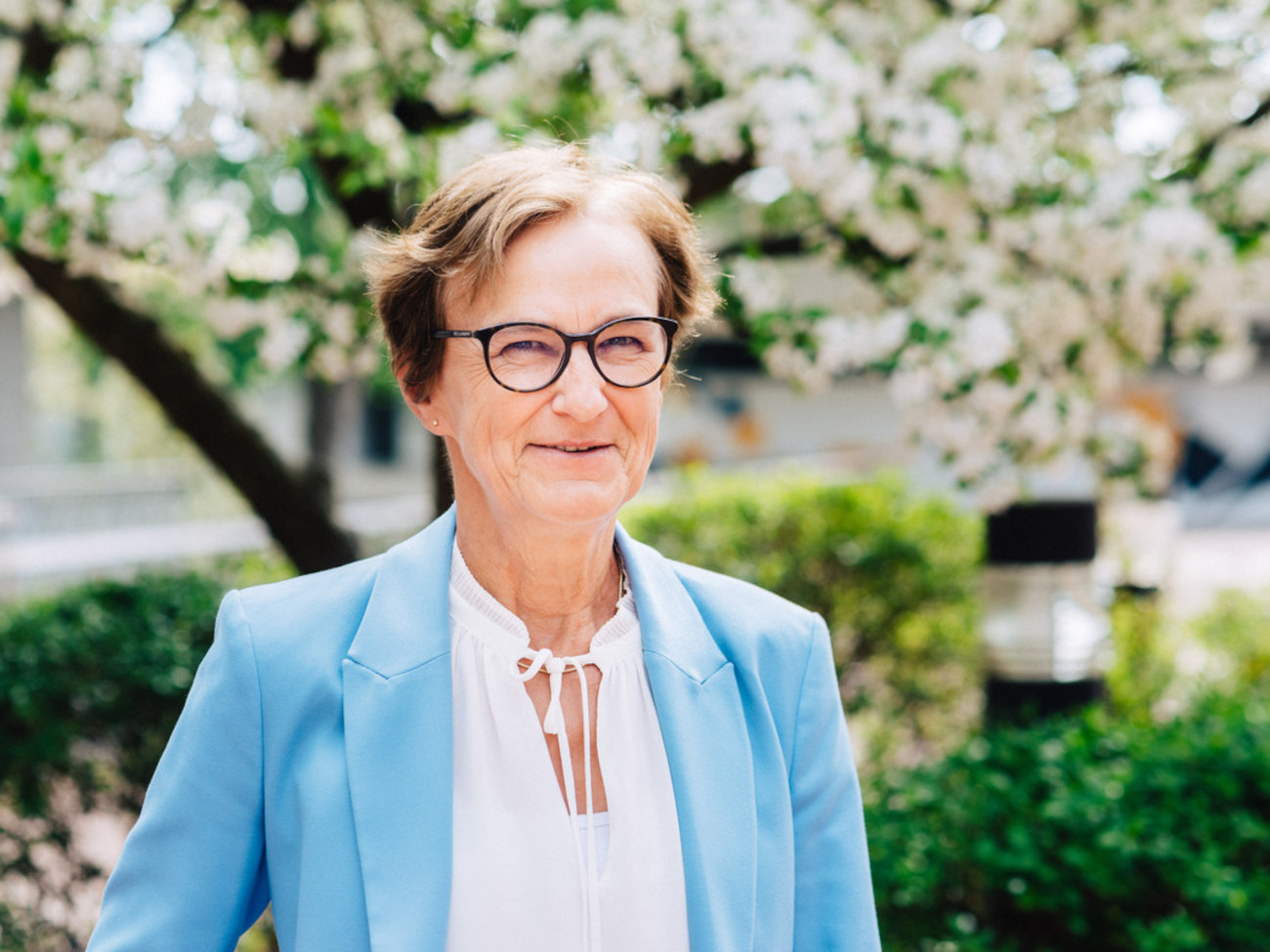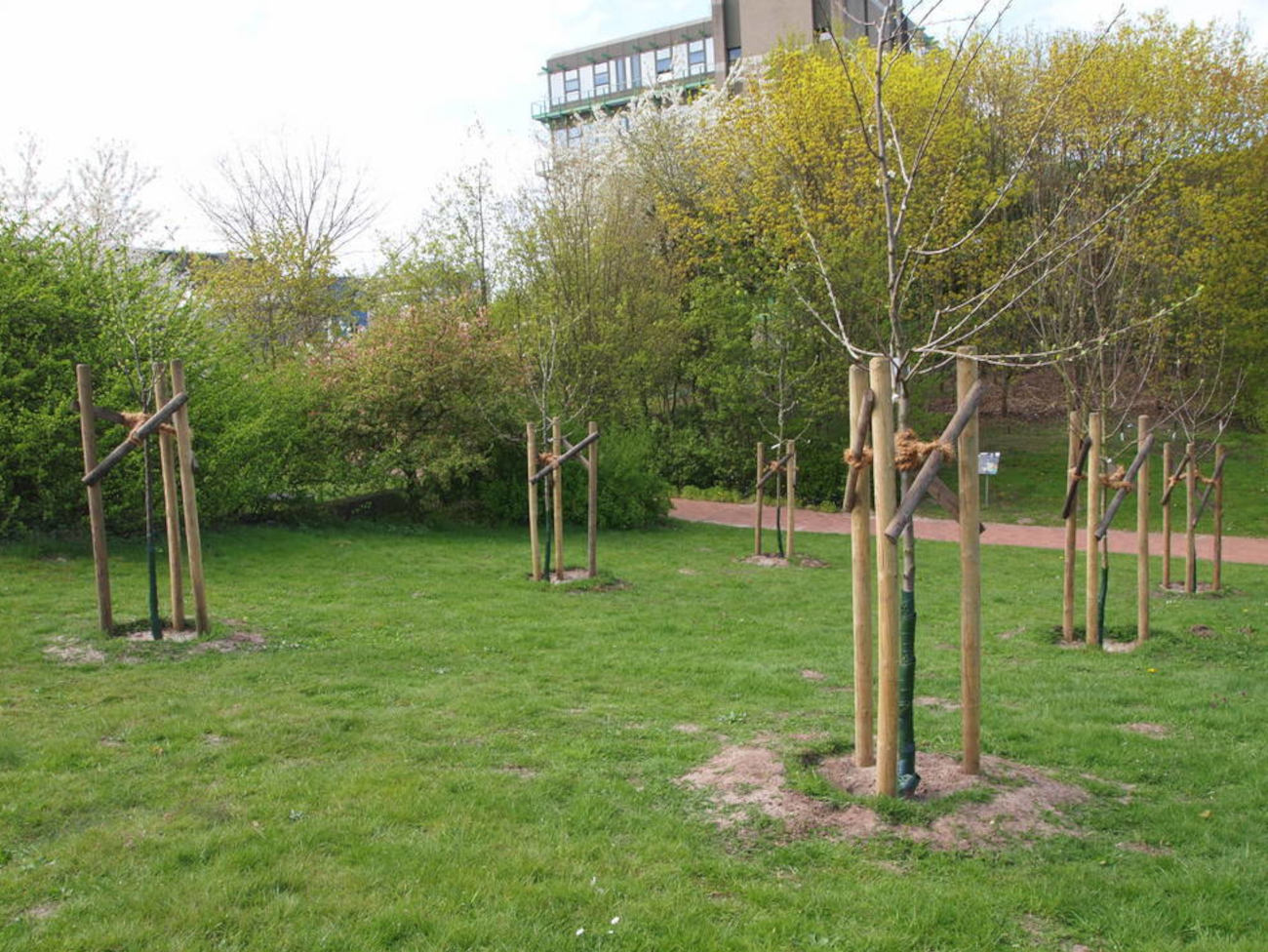
© Doris Sövegjarto-Wigbers / Universität Bremen
Climate Protection Survey: “Strong Interest, Knowledge, and Commitment”
Dr. Doris Sövegjarto-Wigbers, the climate and environment manager at the University of Bremen, is pleased with the roughly 4,000 responses – and presents the results.
Climate and environmental protection is one of the most important topics of our time – also at the University of Bremen. A two-part survey in fall 2021 and spring 2022 among staff and students was designed to determine their own attitudes and behaviors, but also to ask about perceptions of the university’s climate protection measures and the opportunities for improvement. The results are now in.
Dr. Doris Sövegjarto-Wigbers, the climate and environment manager at the University of Bremen, is satisfied with the results. “For the first time in the history of the University of Bremen, we surveyed our employees and students about their attitudes, perceptions, and wishes regarding climate and environmental protection at the university. And this effort has paid off: we now have key indications of what is important to the people on campus – which is more or less a small town of 22,000 residents – in terms of climate and environmental protection, how they see their own behavior, and what can be improved and strengthened.”
In November 2021 and spring 2022, 3,457 employees and 18, 471 students were surveyed. “In total, we had about 4,000 responses,” says the university environmental management coordinator. A little more participation than the roughly 1,800 responses had been hoped for from the students. “We need to be a little understanding here though. Due to the coronavirus pandemic, many students have had to deal with long periods of online teaching and are possibly not keen on spending even more time in front of a screen. Also, those who have only lived in Bremen for a short time may not yet identify so strongly with the campus and the topic at hand.” Participation among employees was significantly better: Doris Sövegjarto-Wigbers puts this down to “strong interest, knowledge, and commitment.”
Low Visibility of University’s Climate Activities
The survey results provide many insights into how people at the university view their own behavior and desires in terms of climate and environmental protection. It also shows how the measures undertaken by the University of Bremen are perceived and what needs to be improved. “What really surprised me was that many of the activities carried out by the university over the years in this area are still relatively unknown,” says Sövegjarto-Wigbers. “Only few people are aware that we have had a continuously validated environmental management system since 2004. Or that the UniBremen Solar eG collective has been installing and operating solar panels on the buildings for 11 years now. And do people know that the university has been using 100% green electricity since 2007?”

© Olga Schreiner / Universität Bremen
Numerous respondents, according to one of the survey results, thus have little to no knowledge of the climate and environmental protection measures implemented at the university. The environmental manager is convinced that more information needs to be put out there: “Why not have one or more central events a year to do this?” Some of the key findings from the survey show:
• There is a strong need for more information on environmental and climate protection. Respondents would like to see regular information sessions on energy-saving opportunities, waste reduction, and sustainability in university and personal surroundings.
• There is a call for greater awareness of climate change among all university staff. Much like the obligatory fire protection training courses, information events on environmental and climate protection should also be held on a mandatory basis for students and employees.
• Students and academic staff in particular frequently mentioned the desire for interdisciplinary, networked courses on environmental and climate protection in all degree courses.
• With regard to the aspect of saving energy on campus, energy-related renovation of the building structure was listed as a key demand.
• Lighting should be reduced in the evenings and motion detectors should be installed in unused areas.
• Biodiversity improvement: there’s a call for a greener greener campus, renaturation of water bodies, vegetated roofs, and the use of rainwater for irrigation.
• The high paper consumption at the university was criticized by many respondents – the trend is toward a paperless office.
• The insufficient number of trash receptacles in public areas and poor trash separation are mentioned remarkably often. Practical and easily accessible solutions are desired.

© Jonas Ginter
Personal Comments Rub Salt in the Wound
“In personal comments, respondents often made it very clear what they thought and wanted,” says Doris Sövegjarto-Wigbers. “That’s where salt was really rubbed in the wound.” Some examples: “In GW2, there is a draft in every corner, the windows are ancient, and many heaters cannot be regulated” (on the topic of energy renovation); “Light motion detectors – there is so much unnecessary lighting at the university” (on the topic of lighting); “Better waste separation in the offices: currently, there is a wastebasket in each office where the plastic trash bag is changed as soon as something is thrown in it” (on the topic of “trash on campus”).
The justified criticism was also accompanied by praise for the university: “The university is already doing a lot. Keep up the good work” and “I already find my employer very exemplary in many respects” are some examples of the positive resonance of the mesures currently in place.
“Now it’s a matter of taking the most sensible demands and best ideas and implementing them.” Dr. Doris Sövegjarto-Wigbers University Environmental Manager
An obvious critical issue for all respondents is the mobility of employees and students. “In fact, this issue of how thousands get to and from the university every day is a central one,” says the environmental manager. “After all, this also produces a particularly large amount of CO2.” Some proposals are radical, for example, making parking at the university “really expensive.” In general, however, there are calls for significantly improved public transport services – be it shuttle buses from park and ride parking lots, a Deutsche Bahn stop close to the university, or mandatory job tickets for everyone, analogous to the student ticket.
Significant Improvement Required for Cyclists
Another major topic: biking to and from the university and conditions on campus. “In general, the situation for bicyclists at our university is considered in urgent need of improvement. The bicycle parking spaces are too few and no longer up to date – which is true.” Topics such as job bikes or an expansion of the bike lane in the direction of the city center – for example, by rededicating a car lane as a “protected bike lane” for bicycle traffic – are burning issues for many of the respondents. “The wheels have been set in motion in this regard. For example, we are planning to open a central underground parking garage for bicycles below the student building this year,” says Sövegjarto-Wigbers, raising hopes for rapid progress.
Because face-to-face exchanges are sometimes important in science, the topic of “business trips” also plays a weighty role in the survey. After all, the coronavirus pandemic has shown that sometimes a video conference can do the trick. “Reduce business trips to really important ones,” “ban air travel for business trips of less than 1,000 km (621 miles),” “travel by train whenever possible,” “reduce and offset the carbon footprint of business trips” are some of the suggestions made.

© Doris Sövegjarto-Wigbers / Universität Bremen
“The survey showed that the topic of climate and environmental protection is very present and an emotional topic for a lot of people on campus. They are ready for changes and even restrictions and want to see some concrete action being taken here on-site,” says Doris Sövegjarto-Wigbers. “The task now is to take the most sensible demands and best ideas and implement them. It won’t happen overnight – the important thing is that it happens at all.”
Further information
Comprehensive information on the University’s environmental management as well as the evaluation of the survey is available on the website of the environmental management.